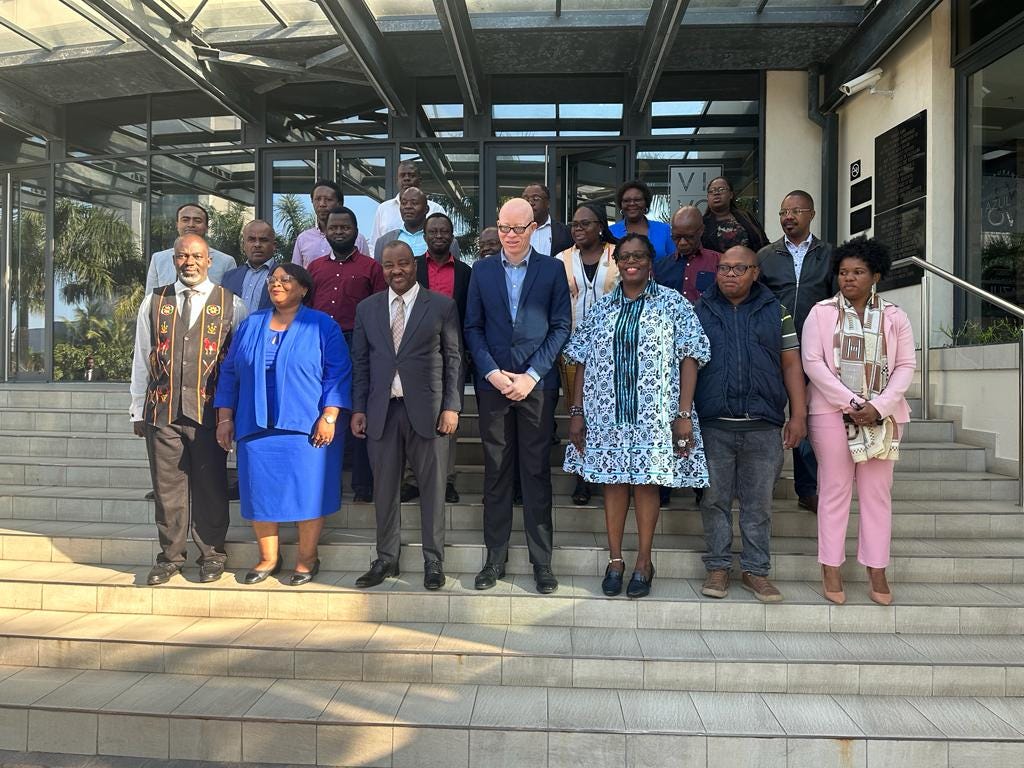African Union Hosts Expert Meeting on Genome Editing Communication
African Union hosts Expert Group Meeting to develop genome editing communication materials, fostering agricultural transformation in Africa.
MAPUTO, Mozambique — The African Union Development Agency-NEPAD (AUDA-NEPAD) has kicked off a crucial Expert Group Meeting in Maputo, Mozambique, to develop comprehensive genome editing (GEd) communication materials, writes Winston Mwale.
The five-day event, running from June 27 to July 1, 2023, aims to bring together a diverse range of stakeholders and pave the way for enhanced agricultural practices across the continent.
The meeting was inaugurated by Mozambique's Minister of Science, Technology, and Higher Education, Daniel Nivagara, highlighting the country's commitment to harnessing the potential of biotechnology and genome editing tools for agricultural advancement.
The exercise to draft GEd training materials for different stakeholder groups follows the ongoing development and stakeholder validation of national communication strategies and their accompanying 2023–2025 action plans by participating countries.
These training materials, alongside related knowledge products, will serve as vital resources to guide in-country communication and advocacy efforts surrounding GEd.
The ultimate objective is to foster a broader understanding of this groundbreaking tool and its associated benefits, thereby facilitating its widespread adoption.
Attending the workshop are national lead agencies, scientists, policymakers, research and development experts, and representatives from the private sector, including the media.
The collective expertise and collaboration among these diverse participants will ensure the effective domestication and utilisation of biotechnology and genome editing tools in transforming agriculture.
The Expert Group Meeting in Maputo represents a pivotal moment for Africa's agricultural development.
With genome editing technology offering new possibilities, the continent stands poised to revolutionise its farming practises, improve crop yields, and enhance food security.
The workshop participants are eager to seize this opportunity to exchange ideas, share best practises, and collectively shape the future of agriculture in Africa.
By pooling their expertise and capitalising on the potential of genome editing, they can unlock transformative solutions that will benefit farmers and communities throughout the continent.
As the Expert Group Meeting progresses, stakeholders will engage in robust discussions, propose innovative approaches, and identify actionable strategies to ensure the responsible and effective use of genome editing tools.
The resulting training materials and curriculum will empower individuals and organisations across Africa to make informed decisions and drive positive change in the agricultural sector.
As the meeting continues, AUDA-NEPAD eagerly anticipates the outcomes and recommendations put forth by the expert group.
The lessons learned and experiences shared during this gathering will serve as a guiding light for Africa's journey towards sustainable agriculture, positioning the continent as a global leader in leveraging cutting-edge technologies to address pressing challenges.
The Maputo workshop has brought together the eight (8) National Leading Agencies of the Genome Editing Initiative (GEd), as well as scientists, policymakers, research and development experts, and private sector representatives from Burkina Faso, Ghana, Nigeria, Ethiopia, Kenya, Malawi, Mozambique, and Zimbabwe.




